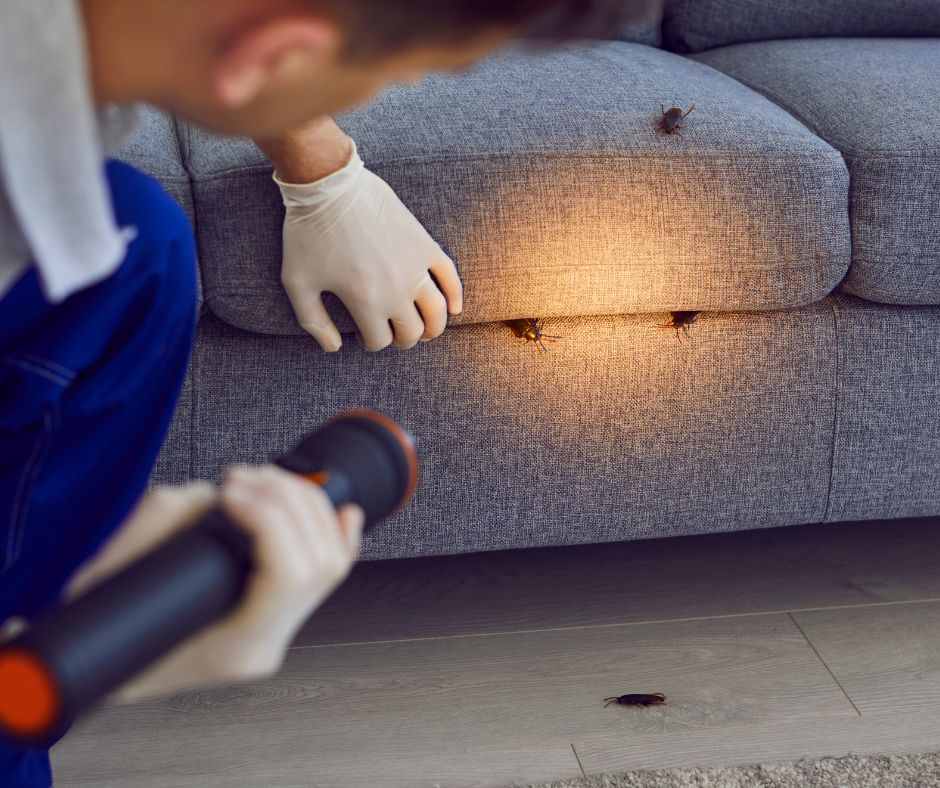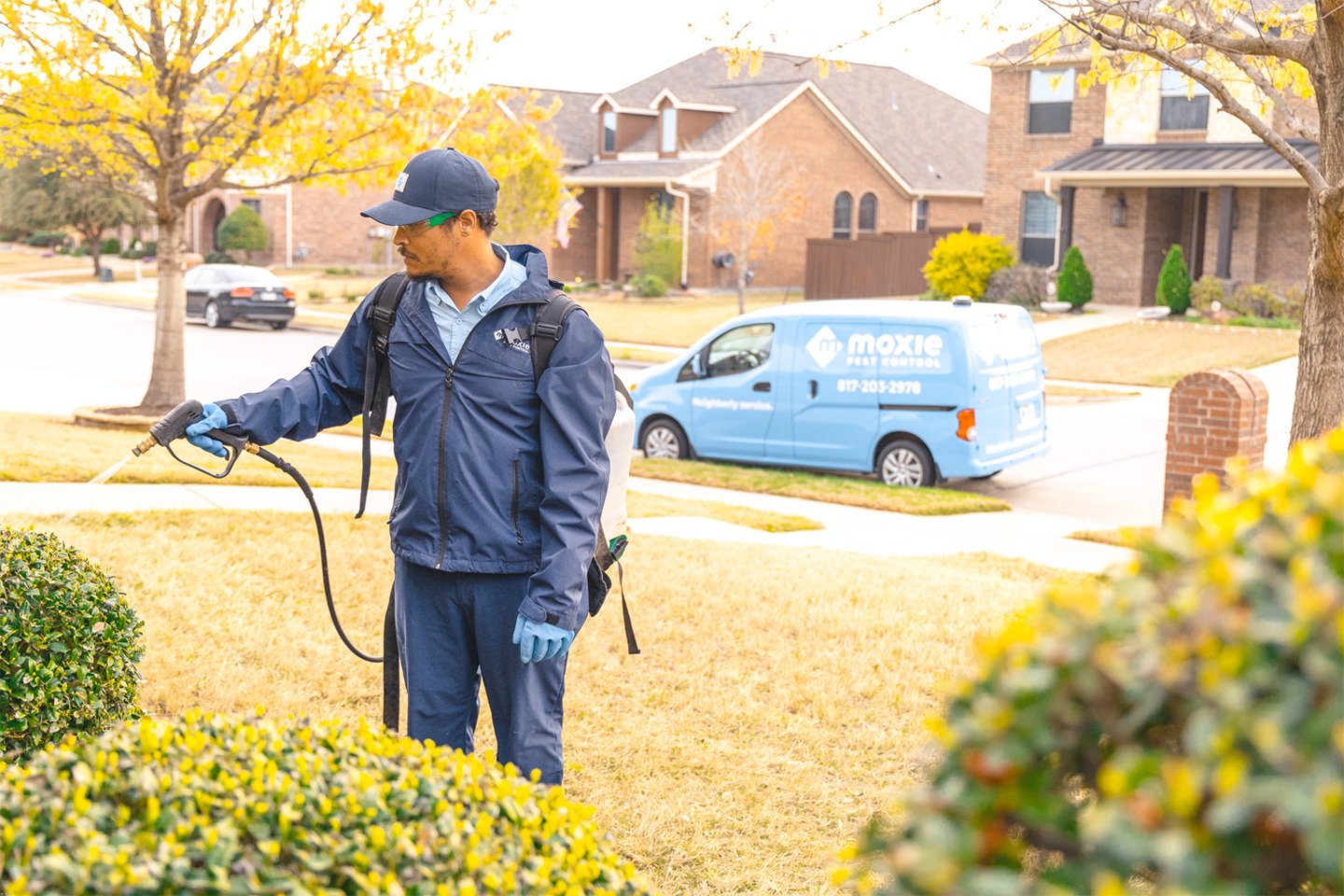Wildlife Removal Services in Port Charlotte for Efficient and Humane Solutions
Wiki Article
Uncover the Relevance of Pest Control in Keeping a Healthy Setting and Treatment Methods

The Duty of Parasites in Communities
Parasites, frequently viewed only as nuisances, play a complex role in ecological communities that is vital for maintaining ecological equilibrium. They contribute dramatically to different eco-friendly processes, including pollination, nutrient cycling, and parasite control. For circumstances, many insect varieties, such as butterflies and , are important pollinators for a large range of plants, which subsequently sustains biodiversity and food manufacturing.In addition, parasites work as victim for numerous predators, developing an important web link in food webs. This connection makes sure the survival of various types and assists control populaces within ecological communities (Termite treatment Port Charlotte). Decomposer bugs, such as certain beetles and fungis, are crucial in damaging down natural matter, thus enriching dirt and facilitating nutrition recycling.
On the other hand, while parasites can be helpful, their overpopulation or intrusion right into non-native environments might disrupt these ecological functions. This intricacy highlights the importance of understanding insect dynamics, as effective parasite administration methods should take into consideration both their eco-friendly functions and prospective effect on human activities. Balancing pest presence while reducing harm is important for protecting the stability of ecosystems and making sure agricultural performance.
Health And Wellness Risks Associated With Parasites
The existence of parasites in various settings expands past their ecological duties, as they additionally pose substantial health dangers to pets and humans. Numerous parasites, consisting of pests, rats, and bloodsuckers, are providers of illness that can have significant health ramifications. As an example, rodents are understood to transfer hantavirus and leptospirosis, both of which can cause serious breathing and kidney issues, specifically.Pests such as mosquitoes and ticks are notorious for spreading out vector-borne diseases like malaria, dengue fever, and Lyme illness. These health problems can lead to high morbidity and death prices, specifically in susceptible populaces. In addition, pests like insects and roaches can exacerbate allergies and asthma, adding to respiratory system problems in people, specifically those with pre-existing problems.
Additionally, the existence of bugs can lead to emotional stress and anxiety and discomfort, influencing overall wellness. Contamination of food and surfaces by insect droppings and continues to be can bring about foodborne ailments, highlighting the importance of keeping hygienic problems. Consequently, recognizing the health threats connected with pests is essential in recognizing the necessity of effective pest monitoring techniques to protect human and animal health and wellness.

Advantages of Reliable Pest Control
Efficient pest control is important for keeping a secure and healthy setting, as it regularly mitigates the many risks connected with pest invasions. One of the primary advantages of effective parasite administration is the decrease of health threats.Additionally, reliable pest control safeguards building and structures from damages. Many insects, like termites and woodworker ants, can cause extensive architectural damage that may need pricey repair work. By proactively taking care of these businesses, invasions and house owners can secure their financial investments.
An additional considerable benefit is the renovation of overall lifestyle. A pest-free environment adds to mental wellness and minimizes stress and anxiety related to infestations. Furthermore, effective insect control promotes a safer environment for kids and family pets, making certain that homes continue to be refuges devoid of disease-causing organisms and hazardous chemicals.
Usual Bug Control Strategies

In the world of insect monitoring, different strategies are utilized to combat problems efficiently. These strategies can be extensively classified into 3 main strategies: cultural, mechanical, and chemical controls.
Cultural control entails customizing methods to decrease parasite establishment, survival, and recreation. This may consist of plant rotation, correct sanitation, and environment adjustment, which jointly create an atmosphere much less conducive to pest expansion.
Mechanical control utilizes physical approaches to remove insects (Termite treatment Port Charlotte). Techniques such as barriers, vacuums, and catches are commonly utilized to directly eliminate bugs from an area. This strategy is particularly effective for handling rats and pests without using hazardous chemicals
Chemical control includes the application of chemicals to take care of parasites. These materials can be categorized into fungicides, insecticides, and herbicides, each targeting particular kinds of insects. It is vital to make use of these chemicals carefully, sticking to safety and security standards and guidelines to decrease possible injury to non-target varieties and the setting.
Each bug control strategy has its advantages and limitations, and usually, an incorporated strategy incorporating numerous techniques produces the finest cause maintaining a pest-free environment.
Lasting Bug Administration Practices
Sustainable insect management practices incorporate a variety of methods created to reduce environmental impact while properly regulating insect populations. These methods prioritize using eco pleasant techniques over chemical pesticides, consequently decreasing the risk of injury to non-target types, including beneficial pests, wildlife, and humans.Integrated Parasite Administration (IPM) is a cornerstone of lasting methods, combining organic, cultural, mechanical, and chemical strategies to take care of bugs. Biological control involves presenting natural killers or parasites to reduce pest populaces. Cultural techniques, such as crop turning and polyculture, disrupt pest life process and enhance ecological community resilience.
Mechanical approaches, such as obstacles or traps, can properly avoid parasite gain access to without chemical treatment. Additionally, keeping healthy environments through appropriate dirt management, plant health and wellness, and Wildlife removal services biodiversity can normally reduce bug issues.
Education and recognition are vital elements, encouraging individuals and areas to acknowledge parasite risks early and carry out safety nets. Termite treatment Port Charlotte. By promoting an all natural approach that balances bug control with eco-friendly integrity, sustainable insect administration techniques not only safeguard frameworks and plants but also contribute to a healthier atmosphere for future generations
Verdict

Understanding the health and wellness threats associated with bugs is critical in recognizing the requirement of reliable pest administration approaches to safeguard animal and human health and wellness.
Efficient parasite control is important for preserving a safe and healthy atmosphere, as it constantly minimizes the numerous dangers connected with bug problems.Integrated Parasite Management (IPM) is a cornerstone of sustainable methods, integrating organic, social, mechanical, and chemical tactics to take care of pests. By recognizing the duty of insects, acknowledging affiliated wellness threats, and employing diverse treatment techniques, a sustainable approach to pest management can be achieved. Integrated Insect Management (IPM) emphasizes a holistic approach that reduces harm to useful organisms while efficiently managing insect populations.
Report this wiki page